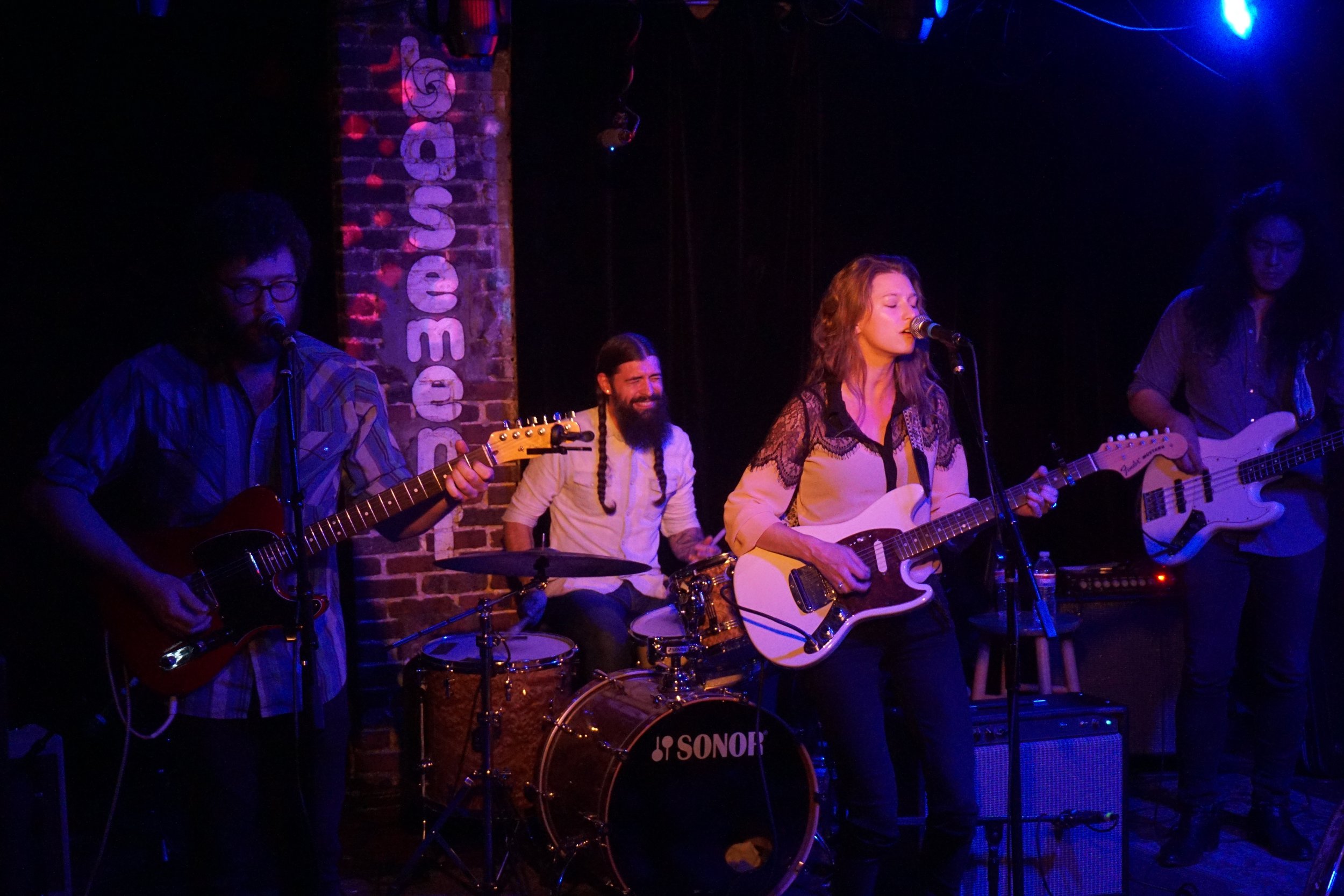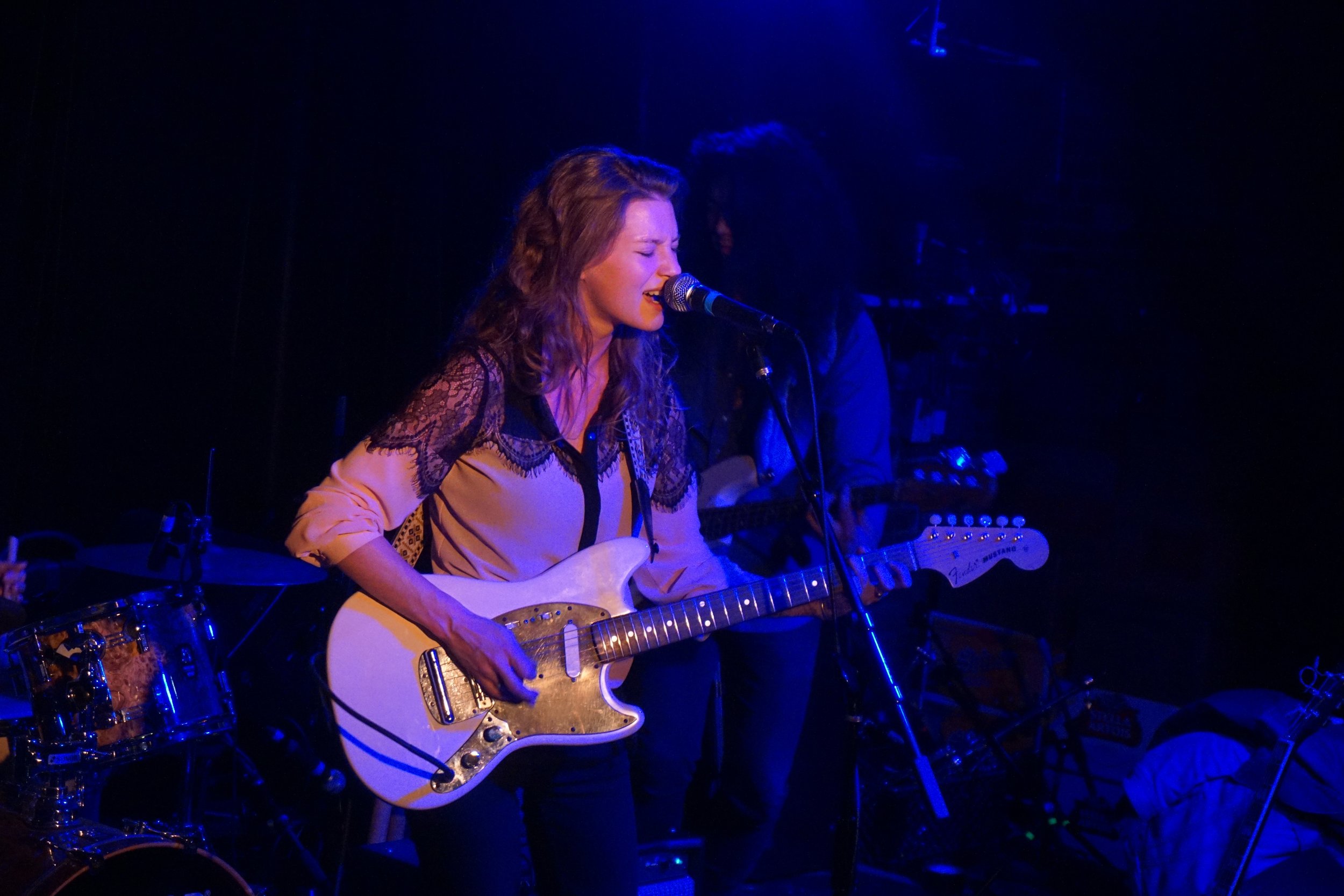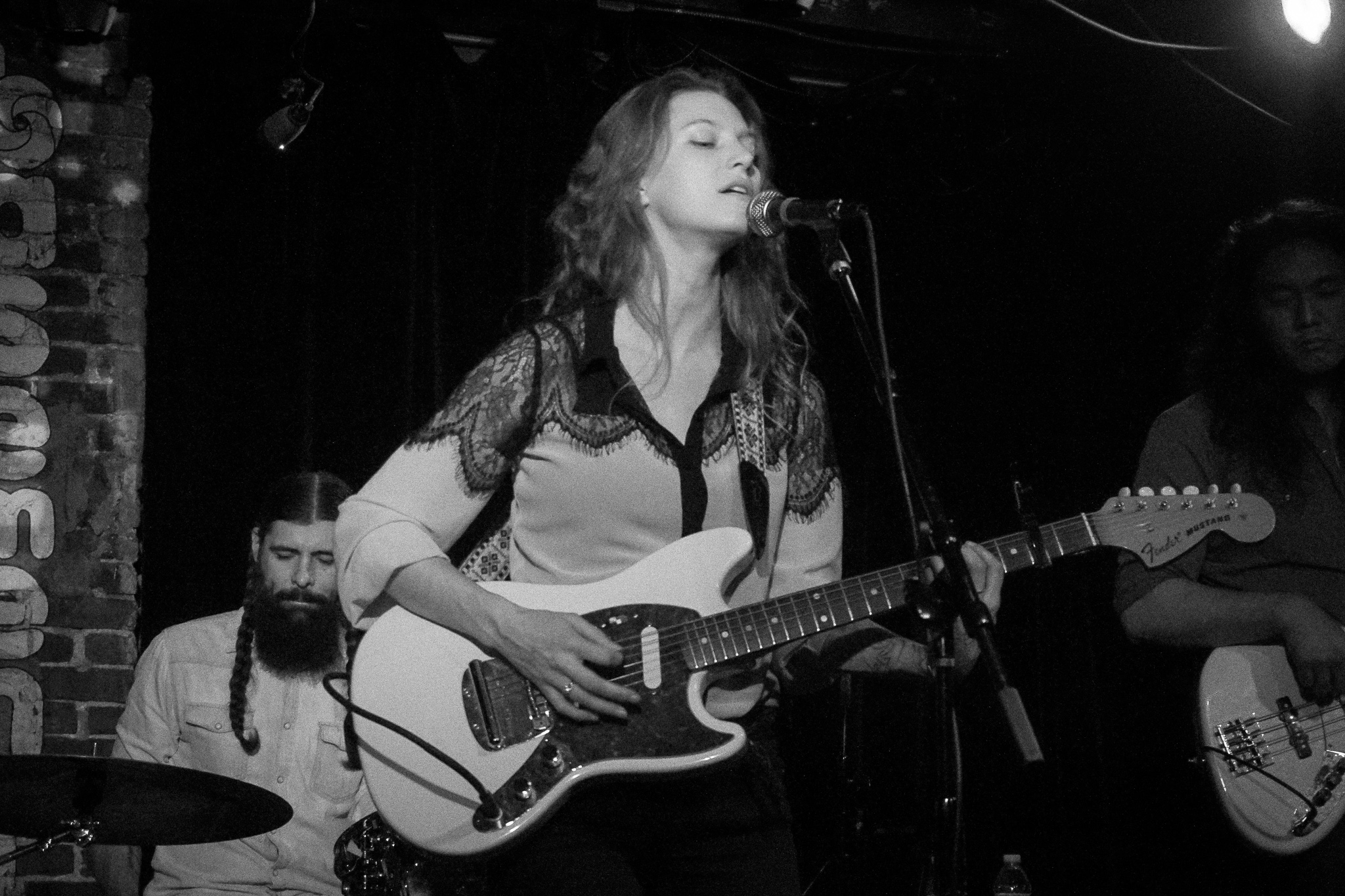Now/It's: Carson McHone at The Basement

There are few things I enjoy more than identifying (see: writing about) allegorical and literal parallels between an artist and a (literary) writer. Sure, that’s probably an overtly “writer-y” thing to say, but (in my mind) it is in fact worth writing about.
In a sense, that probably reads like this is just writing for the sake of writing, but it’s an exercise well warranted when it comes to particular artists/writers. In this case, that particular artist is Carson McHone, though in her unique standing, she does not elicit motifs of any one writer. Instead, she exemplifies the sensibilities and discernment of multiple writers.
During her live sets, McHone makes it very apparent that she herself is of some literary mind, albeit in an intentional manner, while prefacing an unreleased single such as “Hawks Don’t Share.” Assuming most folks that read Now/It’s are of a similar mindset, we’ll skip the background on the inspiration for the song/story and rather simply suggest brushing up on the American literary expat culture of 1920s Paris, or simply seeing McHone live, as she provides a fine and precise synopsis.
Now, back to our original premise. While McHone sites inspiration from the Hemingway memoir A Moveable Feast, one might think the best literary comparison model for McHone would be through the aforementioned American expat culture of 1920s Paris. That would be fair, but also a little easy. Instead, I’d rather collate McHone’s work to a later era.
For a while now, I’ve long considered Carson McHone’s music - specifically that of her recently released LP, Carousel - as a conduit of the revival of the American Short Story. Think Lucia Berlin, Raymond Carver, Lydia Davis, Alice Munro, and other writers from the late 60s into the 80s.
While Berlin, Carver, and Davis’ stories in particular operate in varying realms of grit, despair, joy deferred, and mundanity, McHone’s music operates as a more intimate (and hopeful) alternative.
A song like “Drugs” is a high-minded bit of metaphor that warrants the occasional preface during a show, sometimes out of politeness to those unable to grasp the symbolism, and other times because the last show before Nashville happened to have a number of children in attendance and one must do their due diligence in not inadvertently endorsing drug use in front of formative minds.
While that is anecdotal and not necessarily the point at hand, that scenario in and of itself is something of a Berlin-esque vignette. Anyway, McHone’s honky tonking background brings about an interesting juxtaposition between traditionalism and intellectualism, creating a highly literary experience. A song like “Good Time Daddy Blues” engenders a historically country song-structure but adds a little more modern wit. Or “Dram Shop Gal” which is unequivocally my favorite of McHone’s songs, with both the recorded and live versions running their own unique gauntlet of emotion and purveyed feelings. One is consignment to a role in an otherwise swarthy world (much like a Carver novel), while the other version offers more hope, albeit a fleeting moment (like Davis’ flash-fiction of yore). And then there’s an aspect of McHone’s work that is wholly unique to the aforementioned writers - humor. “Maybe They’re Just Really Good Friends” presents a fatalistic view through a tongue in cheek smile, much like Johnny Paycheck or Jean Shepherd. Then there’s the odd outlier like “How Bout It” that recalls Randy Newman’s high-minded questioning and imagery, undercut by a sobering narrative. That’s no easy feat, but McHone does it in spades.
Realistically, a lot of this could be navel gazing, as is something that tends to happen in the world of media writing, but nevertheless, it’s all in service of highlighting the distinct depth and breadth that sets McHone’s music apart from her contemporaries. Carousel is an utter and complete success, and will hopefully usher in more moments of high-minded honky tonkin’ in the ever burgeoning world of country and Americana. McHone is a natural and innate talent will help maintain this idealized maturation of the americana movement, both in sound and motif, not all that dissimilar to the revivalists of the American Short Story. If that’s what’s happening to country music, then McHone is carving out her corner, and Carousel is one hell of a head start.









